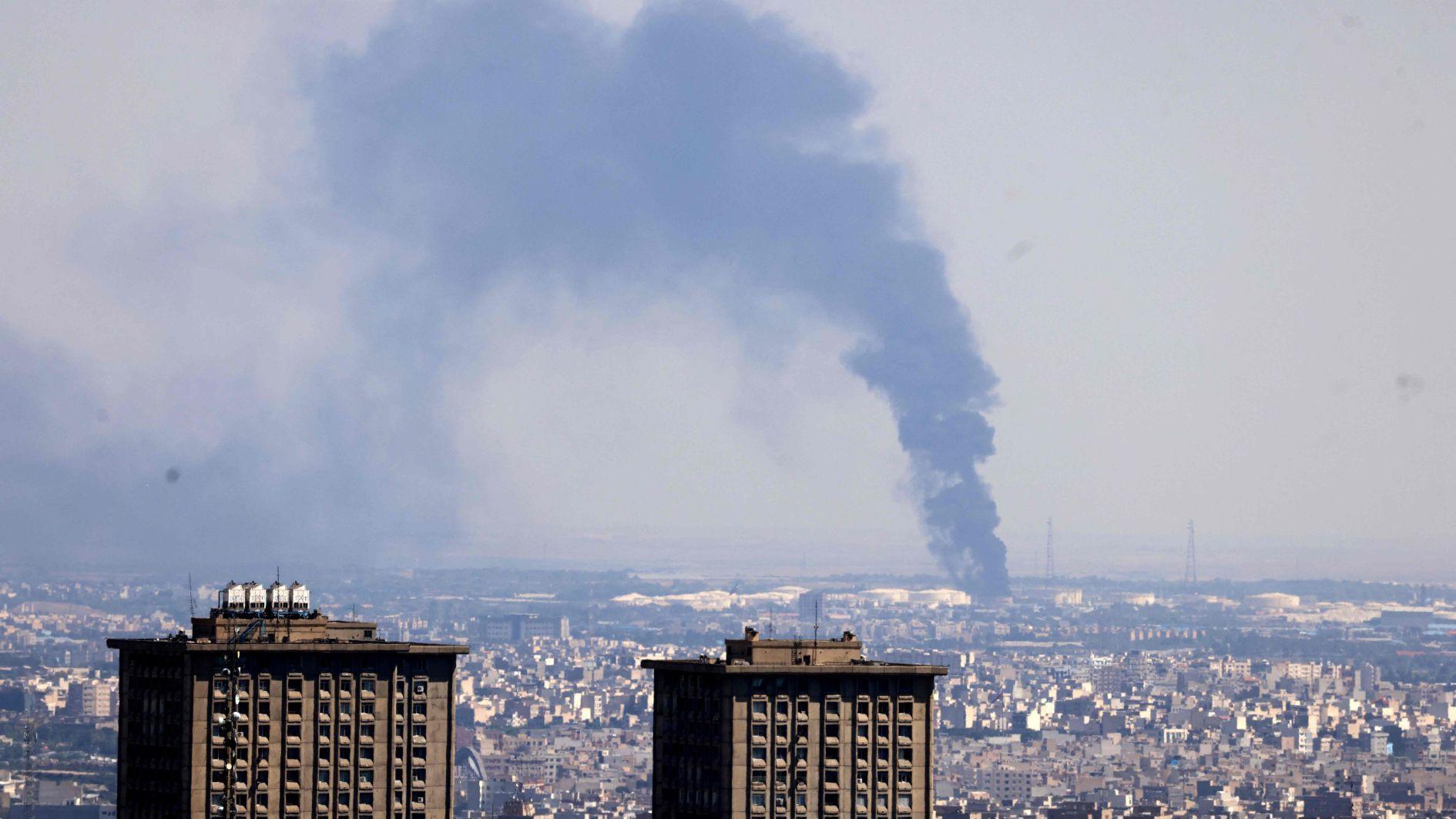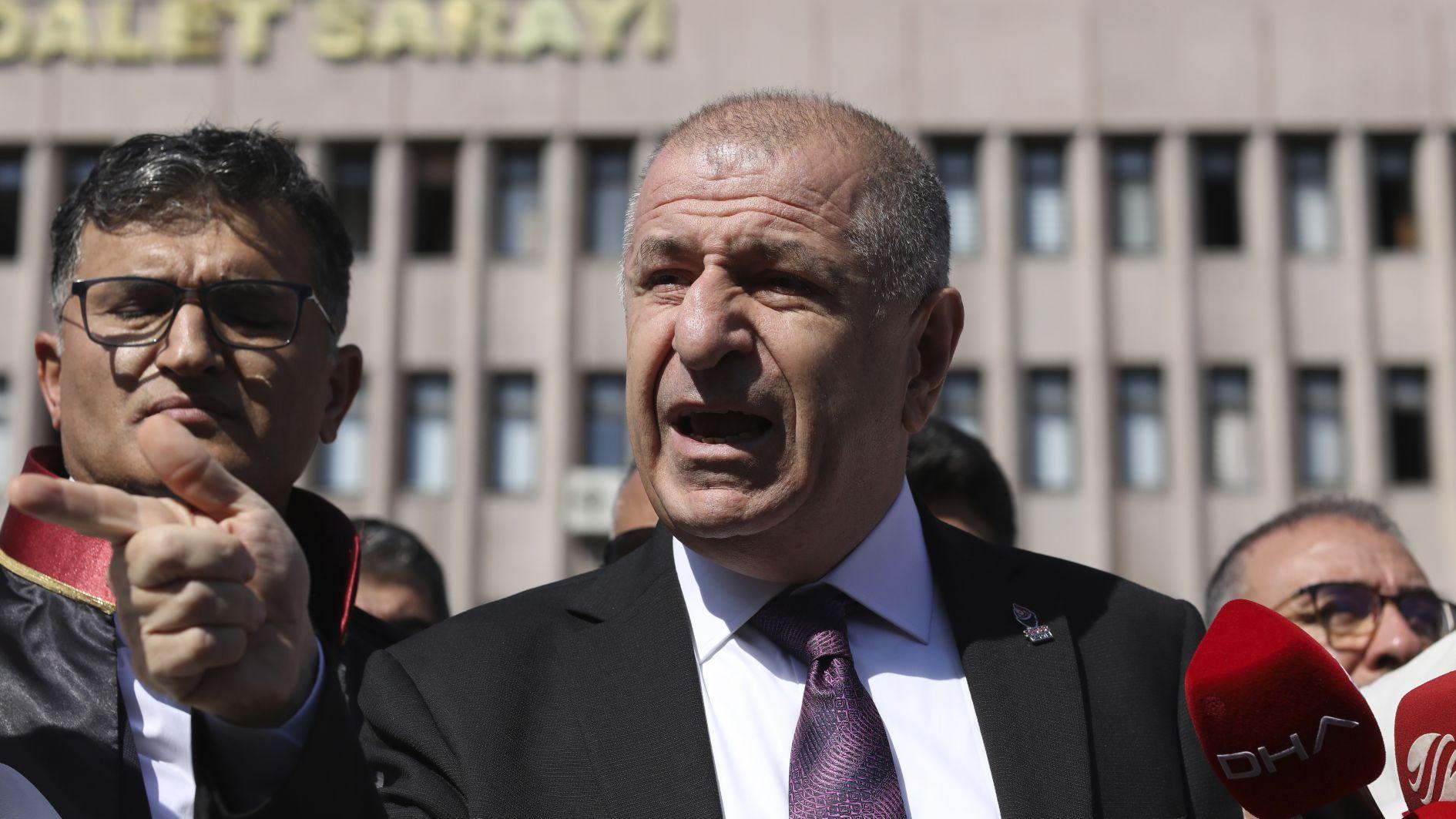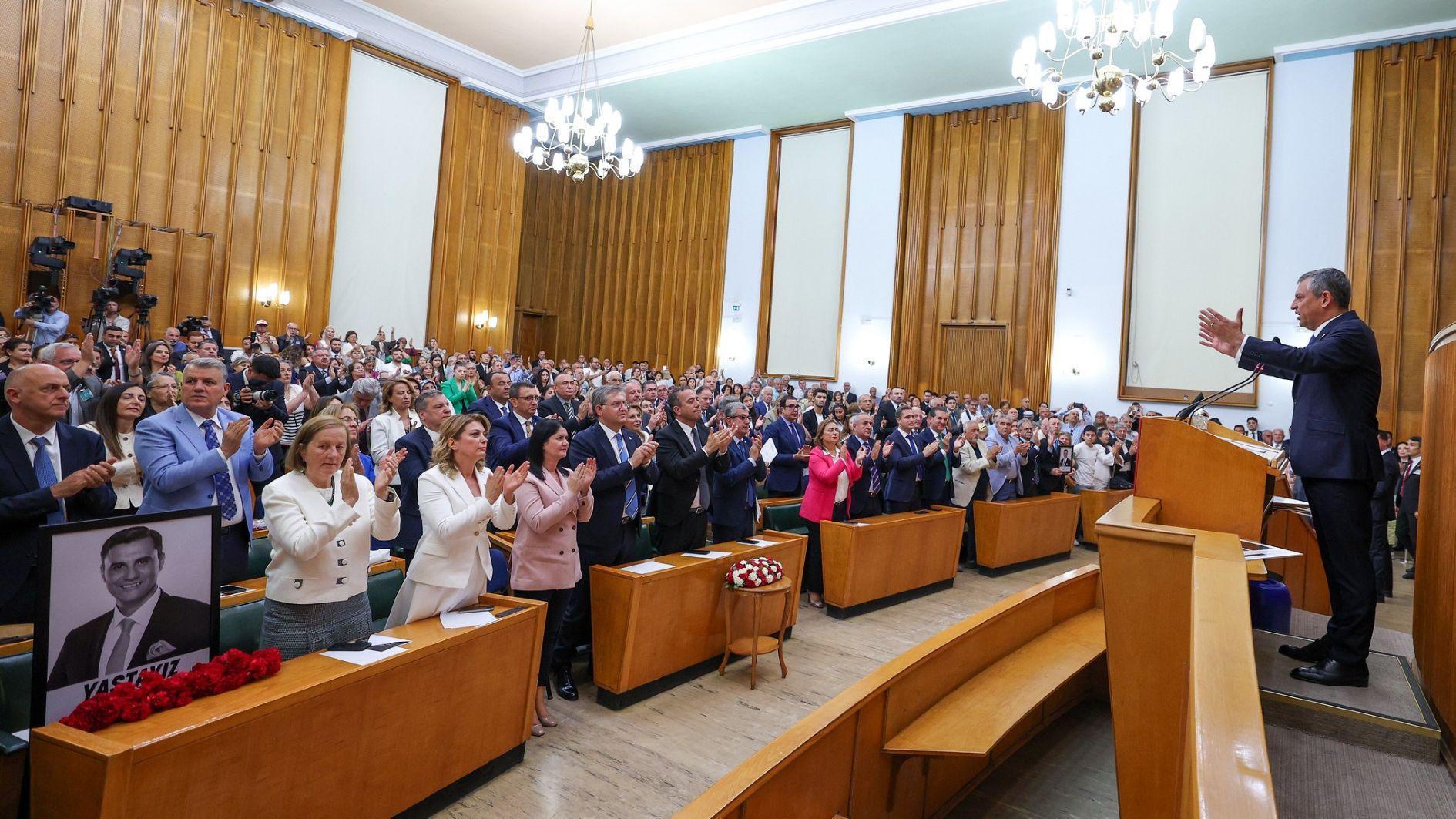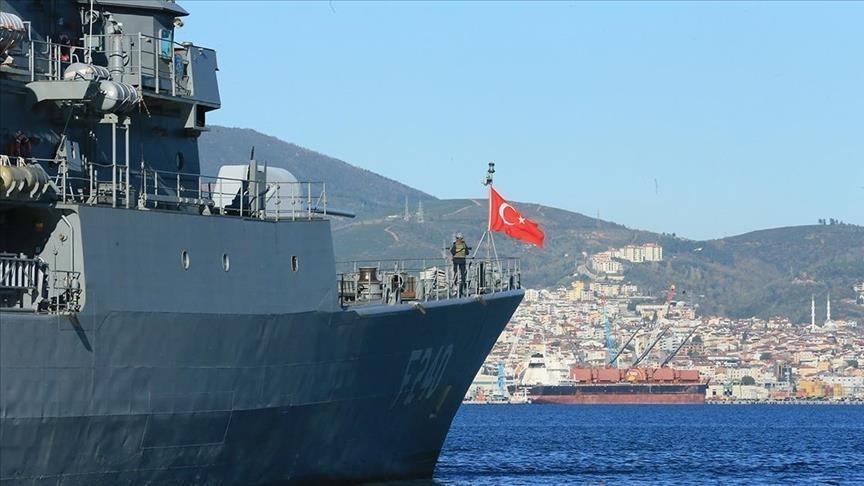Iran vows severe response as Netanyahu threatens to strike 'every target of the ayatollah regime'
TEHRAN
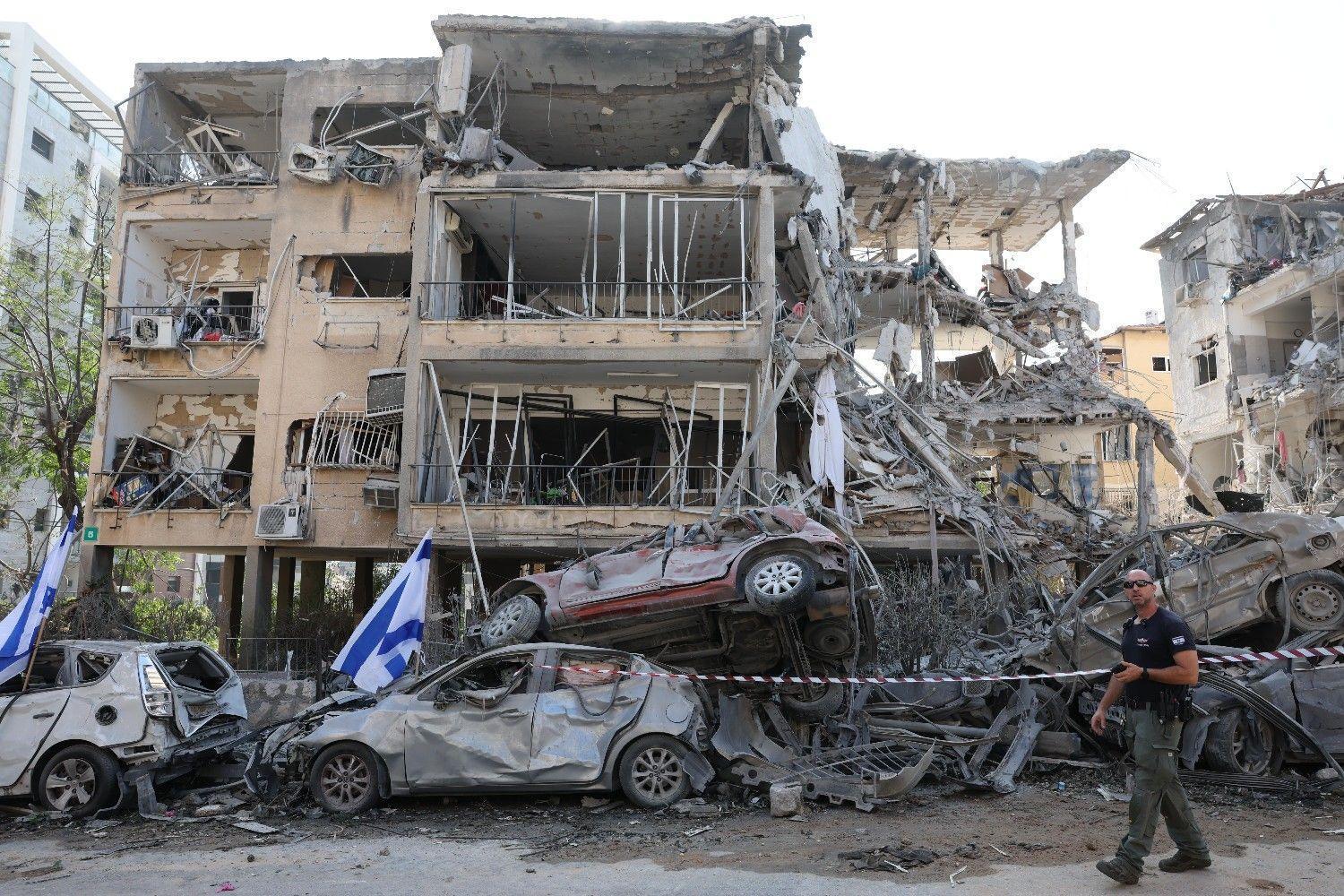
An Israeli police officers walks in a damaged residential area after a ballistic missile strike in Ramat Gan, near Tel Aviv, Israel, 14 June 2025.
Iranian President Masoud Pezeshkian warned on Saturday that there would be a "more severe and powerful response" if Israel continued to strike his country, as Israel's Prime Minister Benjamin Netanyahu threatened to strike "every target of the ayatollah regime" in Iran, adding that Israeli strikes had dealt a "real blow" to Tehran's nuclear programme.
The threats came as the two longtime foes exchanged fire a day after Israel unleashed an unprecedented aerial bombing campaign, which scuppered plans for a new round of Iran-U.S. nuclear talks Sunday.
The Israeli strikes since Friday hit military and nuclear sites in Iran, and according to officials killed dozens, including top army and Revolutionary Guards commanders as well as civilians.
Iran responded with barrages of drones and missiles fired at Israel overnight.
Iranian President Masoud Pezeshkian said that "the continuation of the Zionist aggression will be met with a more severe and powerful response from the Iranian armed forces."
According to a statement from his office, Pezeshkian condemned Washington's "dishonesty" for supporting Israel while the United States was engaged in nuclear talks with Iran — which mediator Oman said would no longer take place on Sunday, when a sixth round had been scheduled.
Iran's top nuclear negotiator, Foreign Minister Abbas Araghchi, said the Israeli attacks undermined negotiations and showed Israel's "inherent hostility to diplomacy".
Iran's U.N. ambassador said 78 people had been killed and 320 wounded in Friday's first wave of Israeli strikes.
Israel said three people were killed and 76 wounded by Iran's retaliation.
Israel reacted furiously to the waves of drone and missile strikes launched by Iran, which lit up the skies over Jerusalem and Tel Aviv.
The Israeli military said it had cleared an aerial path to the Iranian capital, after dozens of strikes targeting missile launchers and air defenses in Iran.
"We will hit every site, every target of the ayatollah regime," Prime Minister Benjamin Netanyahu vowed in a video statement.
He said the Israeli campaign had dealt a "real blow" to Iran's nuclear programme and had the "clear support" of U.S. President Donald Trump.
"Very soon, you will see Israeli aircraft... in the skies over Tehran," Netanyahu said, threatening greater action "in the coming days".
Netanyahu's defense minister, Israel Katz, warned that "Tehran will burn" if Iran keeps targeting Israeli civilians.
'Smoke, dust'
After decades of enmity and conflict by proxy, it is the first time Israel and Iran have traded fire with such intensity, triggering fears of a prolonged conflict that could engulf the Middle East.
Highlighting the unease, Turkish President Recep Tayyip Erdoğan warned against a "devastating war" with regional consequences in a call with Saudi Crown Prince Mohammed bin Salman, Ankara said.
Israel is pushing the region into a "dangerous cycle of violence", warned Iran's top diplomat Araghchi.
Launched early Friday, Israel's operation struck Iran's Natanz uranium enrichment plant and assassinated Iran's highest-ranking military officer, Mohammad Bagheri, as well as the head of the powerful Islamic Revolutionary Guard Corps, Hossein Salami.
The Israeli military said its strikes had killed more than 20 Iranian commanders.
Iranian media reported five Guards killed Saturday in Israeli strikes, while authorities in one northwestern province said 30 military personnel had been killed there since Friday.
Iran's Red Crescent said an ambulance was hit Saturday in Urmia city, killing two.
Iran called on its citizens to unite in the country's defense, while Netanyahu urged them to rise up.
Iran's Mehr news agency said Tehran had warned Britain, France and the United States it could retaliate if they came to Israel's defense.
Overnight, air raid sirens and explosions rang out across Israel, with many residents holed up in bomb shelters.
Israel said some 150 missiles — some intercepted — had been fired from Iran.
AFP images of the city of Ramat Gan near Tel Aviv showed blown-out buildings, destroyed vehicles and streets strewn with debris.
Iran's Revolutionary Guards said they had attacked dozens of targets in Israel. One Iranian missile wounded seven Israeli soldiers, the military said.
Firefighters had worked for hours to free people trapped in a Tel Aviv high-rise building on Friday.
Chen Gabizon, a resident, said he ran to an underground shelter after receiving an alert.
"We just heard a very big explosion, everything was shaking, smoke, dust, everything was all over the place," he said.
In Tehran, fire and heavy smoke billowed over Mehrabad airport on Saturday, an AFP journalist said.
Blasts were heard across the capital as Iran activated its air defenses against the incoming fire.
Iranian media reported a "massive explosion" on Saturday following an Israeli drone strike on an oil refinery in the southern city of Kangan.
Dozens of Iranians took to the streets to cheer their country's response, with some waving national flags and chanting anti-Israel slogans.
es.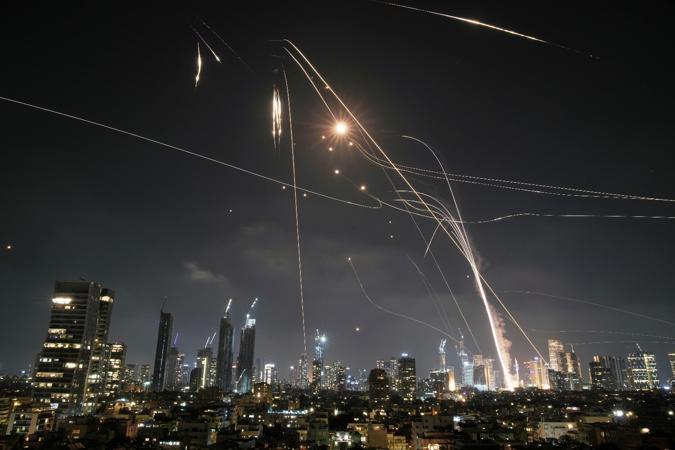
'Time to stop'
The attacks prompted several countries in the region to temporarily ground air traffic, though on Saturday morning, Jordan, Lebanon and Syria reopened their airspace.
Iran's airspace was closed until further notice, state media reported.
As fears mounted of wider conflict, U.N. chief Antonio Guterres called on both sides to cease fire.
"Enough escalation. Time to stop. Peace and diplomacy must prevail," he said on X late Friday.
Pope Leo XIV appealed for Israel and Iran to show "responsibility and reason".
Asked how long the war would last, Israel's ambassador to Paris, Joshua Zarka, said: "A small number of weeks." Prime Minister Netanyahu had said on Friday the strikes would "continue as many days as it takes".
The conflict has thrown into doubt Sunday's planned Iran-U.S. nuclear talks in the Gulf sultanate of Oman.
After Friday's first strikes, U.S. President Donald Trump urged Iran to "make a deal", adding the United States was "hoping to get back to the negotiating table".
Western governments have repeatedly accused Iran of seeking a nuclear weapon, an allegation it denies.
Iran said on Saturday it would be "meaningless" to attend the talks while it was under attack by Israel.



